Does Native Shampoo Cause Hair Loss? Explore the Truth Here.
Do you wake up to strands of hair on your pillow? Do you have an unyielding fear that your favorite Native shampoo could be causing this? My name’s Olivia Green, and before I made a switch to non-toxic products, I too, had similar worries.
It’s high time we address these hair loss concerns, possible ingredient culprits like sodium coco-sulfate, and the fear arising from mixed consumer reviews about Native shampoo. This article will probe into all these aspects, crystallizing the facts, and eradicating fears.
Welcome aboard this enlightened voyage as we sift through pieces of evidence, testimonials, and expert insights for a well-rounded outlook. Here’s to reinforcing your faith in your choices, illuminating the path to healthier hair, and embracing sustainable living.
Does Native Shampoo Cause Hair Loss?
Native Shampoo’s formulation is designed to promote hair health by avoiding chemicals known to cause hair breakage and loss. Each bottle contains just ten non-toxic ingredients, aligning with the brand’s commitment to safety and simplicity. This concise ingredient list makes it easier for health-conscious consumers to understand what they are using.
The core ingredients in Native shampoo include gentle cleansing agents, moisturizers, and fragrances. Sodium cocoyl isethionate and cocamidopropyl betaine provide mild cleaning, while glycerin and sodium cocoyl glutamate help with moisture retention. These ingredients are chosen for their gentle interaction with the scalp and hair, minimizing the risk of irritation and potential hair loss.
Some users have reported experiencing hair thinning or loss after switching to Native shampoo. However, robust scientific evidence linking Native shampoo to hair loss is absent. These anecdotal reports lack support from clinical trials or dermatological studies. Individual reactions to personal care products can vary due to factors such as scalp sensitivity, underlying skin conditions, or even lifestyle choices like stress and diet.
Overall, Native shampoo’s ingredient transparency and minimalist approach make it a safe choice for many. The exclusion of harsh chemicals like sulfates and parabens further emphasizes this point. It’s important to remember that personal experiences with hair care products can vary. What works for one person might not have the same effect on another.
Exploring the Role of Sodium Coco-Sulfate in Hair Health
Sodium coco-sulfate has sparked quite a conversation in the hair care community, both for its benefits and concerns. As our awareness grows about how shampoo ingredients affect hair health, the question on many minds is: does Native shampoo cause hair loss?
Sodium coco-sulfate, a surfactant derived from coconut oil, is used in shampoos to create that satisfying lather and effectively cleanse the scalp and hair of oils, dirt, and debris. Despite its natural origins, it can be a double-edged sword for those with sensitive scalps. Some may experience irritation, which manifests as redness or inflammation, indirectly contributing to hair loss. An irritated scalp can create an environment less friendly for healthy hair growth, potentially causing increased shedding or breakage.
However, there’s a silver lining.
Sodium coco-sulfate is often considered a milder, gentler alternative to traditional sulfates like sodium lauryl sulfate (SLS). This makes it a preferred choice for those seeking effective cleansing without the harshness of conventional sulfates. While it’s less likely to strip natural oils from your hair and scalp compared to SLS, it still does a commendable job in removing buildup.
So, does Native shampoo cause hair loss? Given that Native shampoo frequently uses milder cleansing agents like sodium coco-sulfate, it’s unlikely that this ingredient alone is a direct cause of hair loss. Yet, individual reactions can vary dramatically. What is gentle for some might not be gentle for others.
If you’re worried about hair loss linked to shampoo ingredients, it’s crucial to pay attention to how your scalp and hair react. If irritation occurs, it might be wise to stop using the product and explore milder alternatives or consult a dermatologist. Striking the right balance between effective cleansing and maintaining scalp health is essential for fostering hair growth and overall hair health.
Your journey to finding the perfect shampoo might take some trial and error, but don’t lose hope. A healthy scalp is the foundation of healthy hair, and with the right knowledge and products, you’re one step closer to achieving it. Remember, every hair care choice you make can significantly impact both your hair’s health and your overall well-being.
Can “Fragrance” in Hair Products Cause Hair Loss?
The term “fragrance” in hair products often raises eyebrows, especially when pondering, does Native shampoo cause hair loss? Under U.S. regulations, “fragrance” can represent a concoction of up to 4,000 different chemicals. This broad categorization makes it incredibly difficult for consumers to identify any potential allergens lurking in their shampoo bottles.
This opacity might leave you wondering if your shampoo is hiding harmful substances. Synthetic chemicals hidden under “fragrance” can indeed cause a host of health problems, including hair loss. Allergens in these chemicals often trigger scalp conditions such as redness, inflammation, and general irritation, which can indirectly lead to hair loss.
When delving into the critical question of does Native shampoo cause hair loss, it’s important to note that Native strives to reduce risks associated with “fragrance” by opting for natural and non-toxic ingredients. Despite this effort, individual allergic reactions are always possible. If you notice any scalp issues or increased hair loss, it’s wise to scrutinize the ingredient list for hidden allergens masked by the term “fragrance.”
Ultimately, if you’re concerned about hair loss linked to your shampoo, opting for products with transparent ingredient lists can be a safer bet. This way, you can avoid unintentional exposure to harmful chemicals and irrelevant worries about whether Native shampoo causes hair loss.
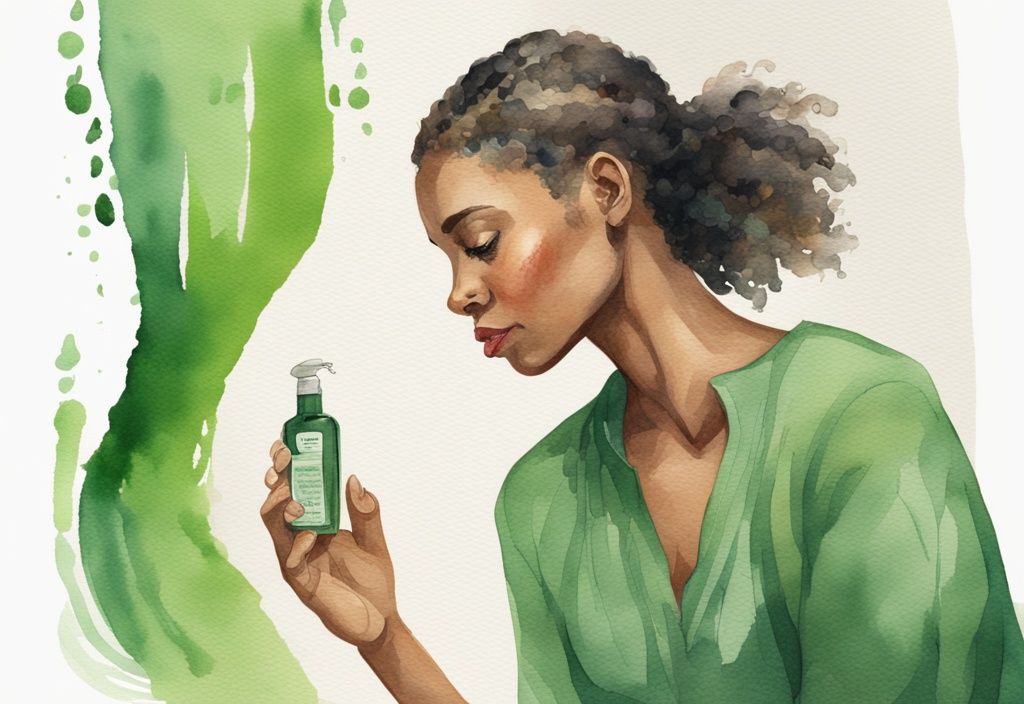
Native’s Stance on Natural vs. Synthetic Ingredients and their Impact on Hair
Native shampoos focus on natural ingredients to ensure gentleness on both hair and scalp. The brand firmly opposes synthetic chemicals, especially those flagged as potentially harmful in hair care products.
One crucial consideration for consumers wondering, “does Native shampoo cause hair loss,” is the company’s deliberate avoidance of harsh chemicals like sulfates and parabens. These are commonly found in many conventional shampoos and are known to cause scalp irritation, dryness, and even hair damage, which could indirectly contribute to hair loss.
To support hair health, Native shampoos are enriched with beneficial natural ingredients like coconut oil and shea butter. Coconut oil, celebrated for its moisturizing properties, makes hair softer and more manageable. Shea butter, known for its nourishing and repairing qualities, helps restore damaged hair. Together, these ingredients help maintain the health and vitality of both hair and scalp.
By keeping their ingredient list simple and natural, Native aligns with the growing demand for non-toxic, effective hair care alternatives. This approach minimizes irritation and damage risks linked to synthetic additives, ensuring the shampoo suits a wide range of hair types and scalp conditions.
In conclusion, Native’s commitment to prioritizing natural over synthetic ingredients significantly enhances consumers’ experiences. This strategy helps alleviate concerns over hair loss while promoting overall hair health through gentle and effective care.
Consumer Experience: Potential Link between Native Shampoo and Hair Loss
What Concerned Users Are Saying about Hair Loss
Some users have voiced their concerns about hair loss after switching to Native shampoo. I’ve seen many discussions where people talk about immediately noticing thinning or more hair fallout shortly after the change. It’s important to keep in mind, though, that there’s no solid evidence that directly links Native shampoo to hair loss. When experiencing such symptoms, it’s easy to blame the latest addition to your hair care routine. But let’s not forget that factors like stress, diet, and pre-existing scalp conditions often play a crucial role.
Compliments and Complaints: Social Media Highlights
Browsing through social media reveals largely positive feedback about Native shampoo. Users frequently rave about how soft and shiny their hair feels after using it. The shampoo’s reputation for repairing damage caused by hard water conditions is often highlighted, praising its conditioning properties. Amidst all this praise, a few users have raised concerns about hair loss. These comments are usually about hair thinning or increased fallout, creating a bit of a divide in user experiences. Nonetheless, despite these isolated complaints, the broader sentiment remains favorable, with many users delighted by the benefits of using Native shampoo.
Professional Insights: Dermatologists on Native Shampoo and Hair Loss
Expert Opinions: Observations and Recommendations
Dermatologists are often asked, “does Native shampoo cause hair loss?” The consensus among professionals is that while Native shampoo generally uses non-toxic ingredients, individual reactions can vary.
If you experience irritation, redness, or inflammation after using Native shampoo, it is advisable to discontinue its use immediately. Understanding the importance of scalp care is essential because it determines the health and condition of your hair; for more insights, check out this study on [scalp care](https://www.ncbi.nlm.nih.gov/pmc/articles/PMC5551307/). These symptoms can be signs that the product is not suited to your scalp and may potentially contribute to hair loss.
It’s crucial to remember that hair health is influenced by a myriad of factors beyond just the shampoo you use. Genetics, diet, and stress levels all play a significant role in the overall condition of your hair and scalp. Nutrient deficiencies or high levels of stress can exacerbate hair shedding, and these issues should not be overlooked when addressing hair loss concerns. For those who are conscious about their skincare routines, you might also wonder, is Supergoop cruelty-free? Consulting with a dermatologist can provide more personalized insights into your hair and scalp health. A professional can conduct a thorough examination to rule out underlying scalp conditions such as dermatitis or fungal infections, which could be contributing to hair loss. They can also guide you on whether an ingredient in Native shampoo or another factor might be causing your issues.
While there is no definitive evidence to confirm that Native shampoo directly causes hair loss, individual responses can differ. If you are experiencing hair issues, a multifaceted approach involving professional consultation will offer the best path forward.
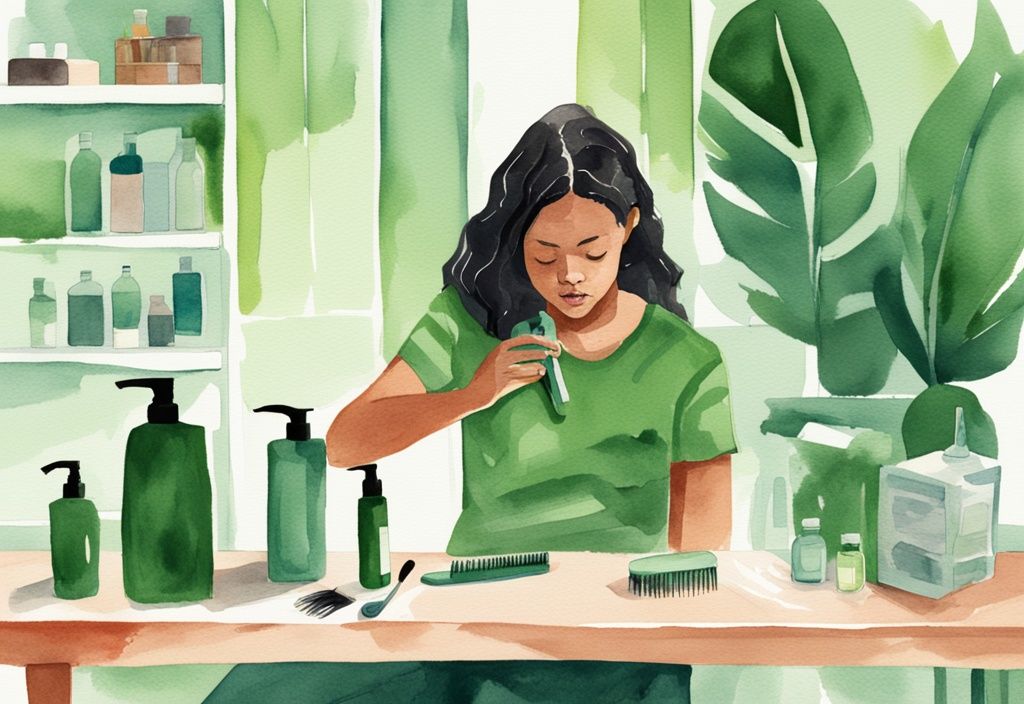
Simple Explanations: Is Hair Loss from Native Shampoo Temporary?
Understanding the Adjustment Period: Possible Temporary Hair Fallout
When you consider switching to a new hair care routine, the initial changes in hair behavior can be quite noticeable. If you’re asking, “does Native shampoo cause hair loss?”, the answer isn’t straightforward.
Your scalp may go through an adjustment period when you start using Native shampoo. This phase can result in increased hair shedding, which might look like permanent hair loss but often isn’t. Your scalp reacts to new ingredients, causing hair to fall out more than usual for a while. This isn’t exclusive to Native shampoo; it’s a common experience with many hair care products.
Detox symptoms can also contribute during this transition. As your scalp gets used to the shampoo’s non-toxic ingredients, it might go through a detox phase. This phase, which can appear similar to hair loss, is typically temporary and involves mild shedding. It’s important to understand that this detox phase usually doesn’t result in long-term hair loss.
Most people notice that any initial hair shedding settles down within a few weeks as the scalp acclimates to the new regimen. So, if you experience hair fall after switching to Native shampoo, it’s essential to give your scalp some time to adjust. For a healthier lifestyle, consider exploring our selection of non-toxic sex toys to make more conscious choices in all aspects of your life. However, monitoring your condition and consulting a dermatologist if symptoms persist is always a good idea for peace of mind.
In conclusion, while Native shampoo is designed with gentle and non-toxic ingredients, the initial reaction from your hair and scalp can involve temporary hair fallout. This adjustment period is normal and typically doesn’t result in lasting effects.
Personalized Shampoo Choices: Protecting Your Hair
Why Matching Shampoo to Hair Type is Crucial
Choosing the right shampoo tailored to your specific hair type and scalp condition is essential for maintaining optimal hair health. Everyone’s hair and scalp have unique needs, and what works wonders for one person might not be suitable for another.
Understanding your hair type—whether it’s oily, dry, curly, or straight—is crucial in preventing issues like dryness, oiliness, or irritation. This personalization helps in maintaining the natural balance and health of your hair and scalp.
If you’re wondering, “does Native shampoo cause hair loss,” it’s important to note that using a shampoo that doesn’t align with your hair type could exacerbate hair problems. For instance, a shampoo designed for oily hair might be too harsh for someone with dry hair, leading to further dryness and even breakage. Conversely, a hydrating shampoo formulated for dry hair could leave oily hair feeling greasy and weighed down.
Moreover, selecting a shampoo that addresses specific scalp conditions can make a significant difference. If you have a sensitive scalp, opting for a product with gentle, non-irritating ingredients can prevent scalp irritations that might indirectly contribute to hair loss.
Native shampoos, known for their minimal and non-toxic ingredient list, can be beneficial, but it’s crucial to monitor how your scalp and hair react to any new product. Personalized shampoo choices not only enhance the natural beauty of your hair but also protect it from potential damage and health issues.
If you find yourself experiencing hair loss after switching shampoos, it might be due to an adjustment period or a mismatch between the product and your hair type. Consulting a dermatologist can offer further insight into whether an ingredient in your shampoo—such as those labeled under “fragrance”—could be causing an allergic reaction or any form of irritation.
The goal is to find a shampoo that complements your unique hair needs, ensuring that your hair remains healthy, vibrant, and strong. Therefore, personalized care is not just a luxury but a necessity for anyone looking to maintain the best possible hair health.
Steps to Take if You Experience Hair Loss after Using Native Shampoo
Discontinue Use Immediately
If you’re experiencing severe hair loss or scalp irritation after using Native shampoo, it’s crucial to discontinue use immediately. Stopping the product can help you assess whether it’s the culprit behind your hair issues.
Consult a Dermatologist
Reaching out to a dermatologist is essential to rule out any underlying scalp conditions or allergies causing your hair loss. A professional can perform a thorough examination and possibly conduct tests to identify specific allergens or issues contributing to your hair loss.
Switch to a Suitable Shampoo

Switching to a shampoo that suits your hair type and scalp condition is vital. Choose products specifically formulated for dryness, oiliness, or sensitivity. Carefully read ingredient labels, and opt for hypoallergenic shampoos to reduce the risk of similar problems in the future.
Frequently asked questions about Native Shampoo and Hair Loss
Understanding the link between Native Shampoo and hair loss can help you make safer choices and protect your hair’s health. The underlying causes can vary, so here’s what you need to know.
Does Native shampoo cause hair loss due to allergies?
I’ve heard from a few friends and readers who’ve worried about hair loss linked to allergies from shampoo ingredients. Personally, I’ve also been cautious about this because of my sensitive skin. An allergic reaction to certain components, especially those hidden under the term “fragrance,” can indeed lead to hair loss.
Native shampoo avoids many known allergenic chemicals, but it’s crucial to understand that sensitivities can vary widely among individuals. If you suspect an allergy, pay close attention to how your scalp reacts after using the product.
What should I do if I experience hair loss after using Native shampoo?
If you notice hair loss after switching to Native shampoo, my immediate advice is to stop using it and monitor if the hair loss subsides. That’s what I did when I experienced a similar issue. It’s also a good idea to consult a dermatologist.
A dermatologist can help identify any potential scalp conditions or allergies that might be causing the issue. From my own journey, I’ve found that switching to shampoos with natural ingredients or hypoallergenic alternatives can make a big difference.
What harmful chemicals should I be cautious of in Native shampoo?
Native shampoos are generally celebrated for being free of harmful chemicals like parabens, sulfates, and phthalates—they prioritize safer formulations. However, the term “fragrance” can be a catch-all for various ingredients, some of which might be problematic for those with sensitive skin.
Always be diligent about checking ingredient lists. I’ve learned to look for products that offer more transparency in their formulations, which can help avoid any unexpected reactions. This little step can go a long way in making sure what goes on your scalp is as safe as possible.
Conclusion
Despite some user reports of hair loss associated with using Native shampoo, there is currently no concrete evidence definitively linking the product to such cases. It’s essential to recognize that individual reactions to hair care products can vary widely. Native shampoo’s formulation involves a minimal number of natural, non-toxic ingredients, generally making it a safe choice for most users.
The product’s commitment to avoiding harsh chemicals, such as sulfates and parabens, adds to its appeal as a gentle option for daily hair care. This approach aims to minimize the risk of scalp irritation and damage. However, everyone’s scalp and hair types are unique, and personalized responses may differ significantly.
Given the diversity in hair and scalp conditions, selecting a shampoo that caters specifically to your hair type is crucial. Personalization is key in maintaining hair health, as a mismatched product could exacerbate issues such as dryness, oiliness, or irritation. If you experience adverse effects like significant hair loss or irritation after switching to Native shampoo, it is advisable to stop using it immediately. Consultation with a dermatologist can help determine if the product is causing these issues or if other factors are at play.
The concerns about hair loss should also be weighed alongside factors like genetics, diet, and stress, which significantly influence hair health. Ultimately, while Native shampoo’s simple and natural ingredients offer a generally safe alternative, professional advice and personalized choices remain essential for those experiencing hair loss.
Hi, I’m Olivia Green, the voice behind nontoxicways.com. I’m passionate about helping you make the shift to a healthier, non-toxic lifestyle without feeling overwhelmed. I love sharing my personal journey, from small changes to big transformations, along with practical tips that make it all feel doable. My goal is to inspire and guide you toward a lifestyle that benefits both your well-being and the planet. Let’s take this journey together, one simple step at a time!
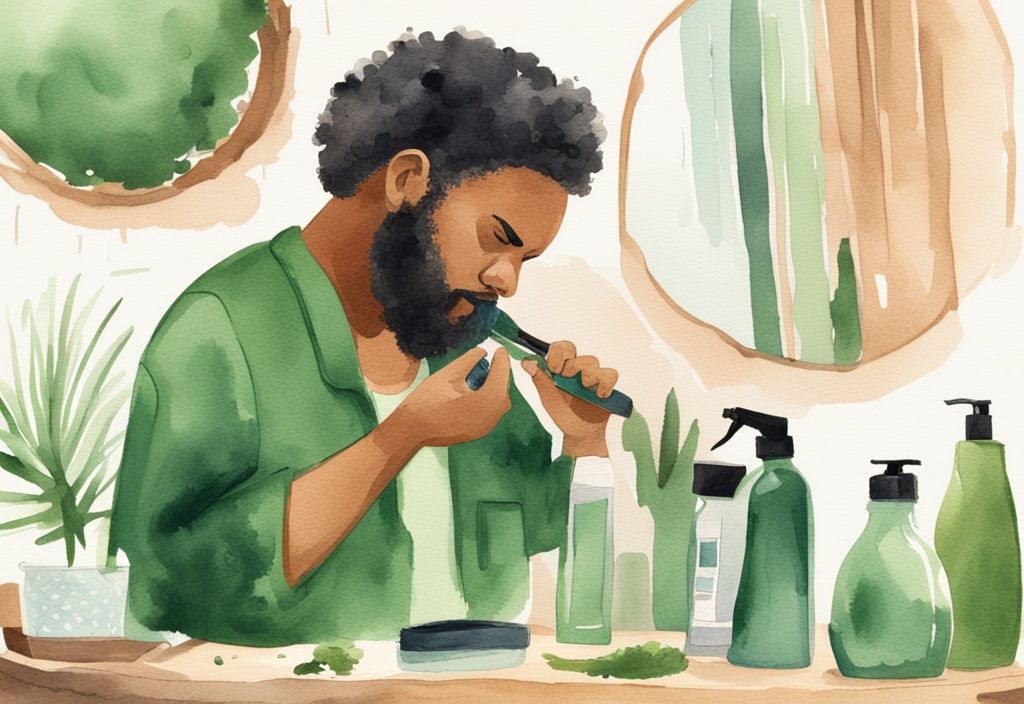
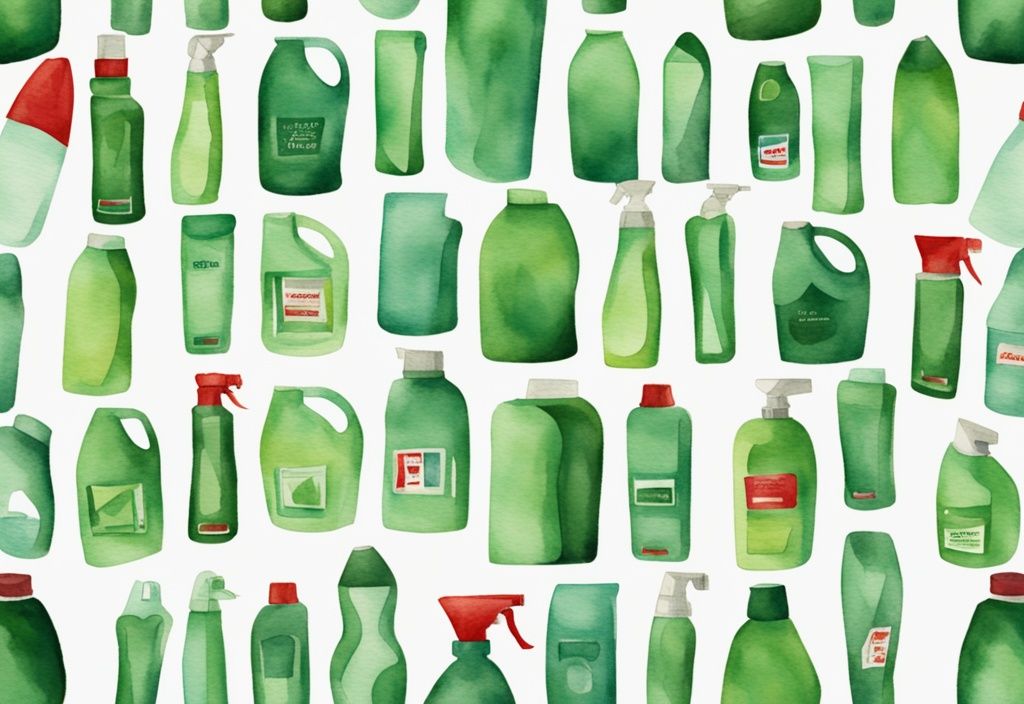
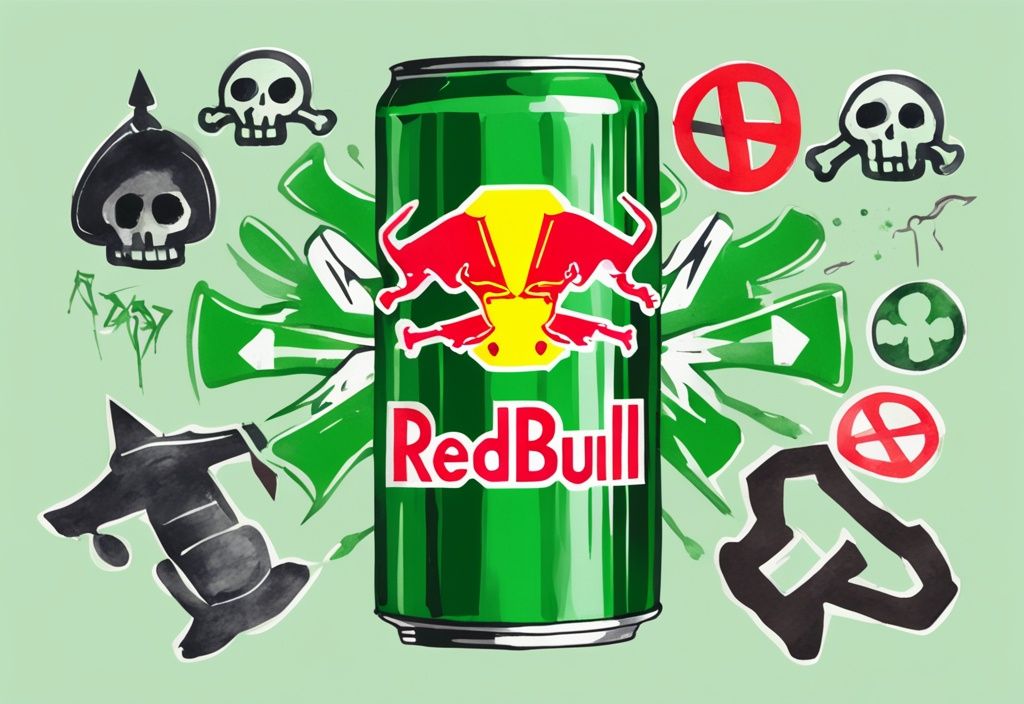

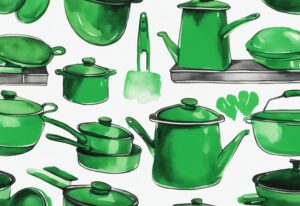



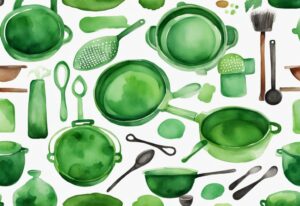

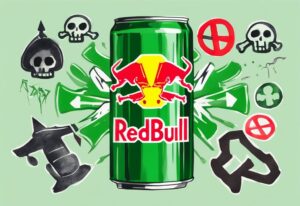

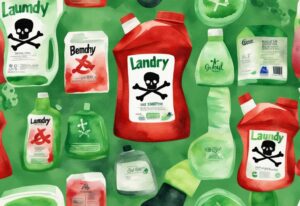

Post Comment